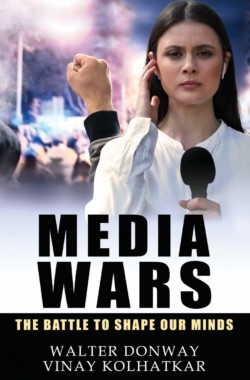Selma Trusts History and Triumphs
Selma, the new movie about the Selma-to-Montgomery (Alabama) marches in 1965 to demand voting rights for American “Negroes,” is not a documentary. The film’s director, Ava DuVernay, a rising young African-American movie director, has insisted on that point in response to charges that the film distorts the role and words of U.S. President Lyndon B. Johnson in his impassioned negotiations with the Rev. Martin Luther King (played by British actor David Oyewolo).
Historical drama films have done well, this season, with Golden Globe, Screen Actors Guild, and Academy Award nominations for The Imitation Game—about the WWII code-breaking hero, Alan Turing, American Sniper—about the legendary sniper Chris Kyle, and now for Selma’s depiction of the heroic confrontation in the Alabama city that made Dr. King an American hero. He already had led famous protests that influenced enactment of the Civil Rights Act of 1964 and been awarded the Nobel Peace Prize a year earlier.
I raise the comparison between Selma and The Imitation Game because the latter has been attacked (by me as well as much better-known critics) as distorting Turing’s decisive contribution to Allied victory in WWII, fabricating most of the dramatic conflicts, and elevating Turing’s persecution for homosexual relations into the theme of his life. It is natural, then, to ask the same questions about Selma, a historical drama coming to the screen so soon after The Imitation Game, and purporting to portray King, his ideas, his relationship with LBJ and the Washington establishment, and his highly controversial relationship with his wife, Coretta (played by British actress Carmen Ejogo).
Every facet of King’s adult life is controversial, but criticism of the film, to date, suggests that the only challenge to its portrayal of history might the treatment of LBJ, shown sympathizing with King.
Every facet of King’s adult life is controversial, but criticism of the film, to date, and my own research, suggests that the only challenge to its portrayal of history might the treatment of LBJ, shown sympathizing with King, encouraging him, but stonewalling on voting rights legislation—and finally turning FBI Director J. Edgar Hoover loose to threaten and discredit him. One of the men closest to Johnson throughout his presidency, Joseph A. Califano, Jr., has asked if the writer and director of Selma felt “free to fill the screen with falsehoods, immune from any responsibility to the dead, just because they thought it made for a better story.”
Director Ava DuVernay claims that she had to rewrite 90 percent of British writer Paul Webb’s script because, in 2009, the estate of Dr. King licensed the movie rights to all his speeches to DreamWorks Pictures and Warner Brothers for a project that interested film magnate Stephen Spielberg. In the end, DuVernay had to rewrite all the speeches that Dr. King makes in Selma—and they are, to say the least, significant—to avoid the copyright problem. All of this is just a preface to DuVernay’s reply to charges of historical distortion: “I’m not a historian, I’m a storyteller.” Nor, she says, is she “a custodian of anyone’s legacy.”
Selma is an intense drama, but it is one of conversations, moments of doubt and fear, and climactic brutal and preposterous assaults.
My perception, however, is that Selma works hard to stick to historical truth. What Johnson and King discussed is not recorded, but portrayal of events and conflicts in Selma are easily validated. Selma is an intense drama, but it is one of conversations, moments of doubt and fear, and climactic brutal and preposterous assaults, including a mini-cavalry charge, that dramatize how the threat of racial equality unleashed primitive violence in men whose deepest self-conception rested on racial superiority.
This, then, is a brilliant drama, but one of facial expressions, conversations—including tense debates with other organizations and leaders advocating violence–that only briefly explodes into brutality as sheriffs face King’s bewildering tactic of nonviolence. It is the kind of drama that The Imitation Game, for example, does not trust to capture its audience without insertion of a series of wholly fictional conflicts.
Thus, despite scenes of club-wielding brutality worthy of a Cossack charge, Selma is about the conscience, faith, and insistent realism of King. Perhaps this veracity (“footnotes” silently scroll down the screen to document certain conversations and events) reflects the pragmatism of the producers, who knew that the enemies and detractors of Dr. King have not passed into history, that every departure from the historical record would be seized upon to discredit the film.
But no historical dissection can dim the image of hundreds of ordinary citizens of Selma falling in behind King and other leaders to challenge the decades of Jim Crow laws, the preposterous voter registration “tests” imposed on African-Americans, and rage at the charade of racial superiority. An outstanding achievement of this film, in an era of routine cinematic ultra-violence that numbs the mind, is its depiction of the horror of actual beatings—the awful thud of a club on flesh—and killing. And that reality is reflected above all in the face of King, who must watch the human price exacted by “nonviolent” confrontation.
Nevertheless, two attempts to rewrite history that will be impossible to defend are the blurring of King’s serial marital infidelities and the true origin of the FBI investigations of King. Sources both supportive of King and antagonistic to him, and quotations of King himself, seem to confirm that he was a guilty philanderer. In the film, this looms large as King and his wife are shown listening in grim silence to anonymous phone calls (we are to believe from the FBI) threatening to expose King’s infidelity. If his infidelities are relevant to what King achieved, it is only because he did not let the threats intimidate him. It is a matter of record, though, that in fall of 1963, during the administration of John F. Kennedy, his brother and attorney general, Robert F. Kennedy, directed the FBI, in writing, to initiate wiretapping of Dr. King because of alarm at his connections with the American Communist Party; President Kennedy was informed of this. The film, however, evades any mention of this role of the Kennedy icons, implying that Johnson, a more acceptable target, was responsible.
It surprises us, now, and evokes scorn, that presidents would unleash FBI investigations of King’s open relationships with members of the Communist Party of the U.S.A.. Yet, such a reaction is decidedly ahistorical; at the time, communism in the Soviet Union and the People’s Republic of China was perceived to be a threat to America’s existence. You need only count the number of thermonuclear warheads being loaded onto Soviet bombers, nuclear submarines, and land-based intercontinental ballistic missiles and aimed at U.S. cities.
All evidence, though, indicates that King was a ‘democratic socialist’ who recognized that Russia and China were totalitarian regimes, but, more important to him, atheistic world powers.
There can be no “spoilers” in the case of Selma, because it is largely true to the historical record. King and the people of Selma, aided by a surge of reinforcements from Northern churches, win their confrontation with the sheriff, his centurions, and his cavalry who would have prevented the march from Selma to the state capital in Montgomery. They do complete the march, at last, despite opposition of Governor George Wallace, and rally before the statehouse in Montgomery, where we get another of King’s rousing quasi-sermons, ending with ecstatic recitation of “The Battle Hymn of the Republic.”
It was American through and through, of course, and that was King’s great strength. In his crusades, King had the wisdom to ‘keep it simple,’ to demand for Negroes only what other Americans enjoyed—nothing more or less. Even the highly questionable aspects of the Civil Rights Act, which violate property rights by denying owners of private facilities the right to choose with whom they deal, are not a problem for the film. Its focus is on voting rights and the simple demand that African-American citizens register and vote on exactly the same basis as whites. It was a challenge impossible to confute.
“We hold these truths to be self-evident, that all men are created equal, that they are endowed by their Creator with certain inalienable Rights, that among these are Life, liberty and the pursuit of Happiness.”
Adhering to that principle, King could not be stopped; in remarkably few years, he won. The Voting Rights Act passed in 1965 in the wake of protests in Selma and elsewhere that aroused national revulsion at injustice. When confronted with the choice between Thomas Jefferson, the Enlightenment, and the rights of man, on the one hand—and the ancient regime of status, based on race, on the other—Americans had no doubt.
The glory of Martin Luther King, whatever his contradictions, was to confront Americans, in a form they could not evade or avoid—on television every evening, in the newspaper every morning—with the choice to honor their principles or disown them. On those terms, he won, and Selma tells the story of the decisive days of that conflict, when the conviction of one man and the courage of many spoke to the better selves of Americans.
« American Sniper and Birdman: A Tale of Two Movies Is Mathematics Just an Intellectual Game? — Part II »










